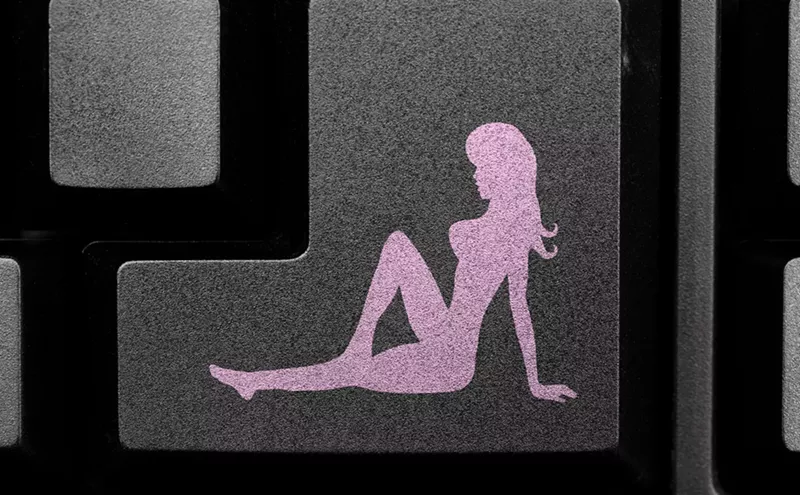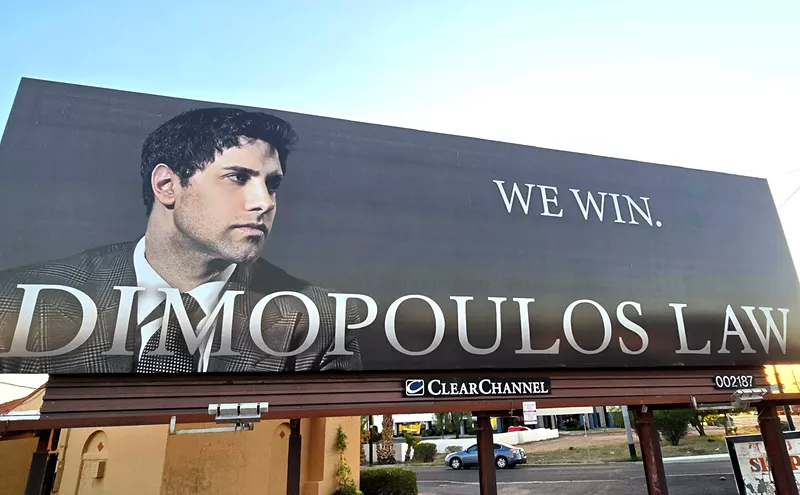Of all the court watchers in America, Monkman might have seemed most likely to dive right in. A true crime junkie, she'd already posted some 10,000 messages on www.courttv.com. She'd even met her best friend online, discussing a murder trial. And she was particularly obsessed with cases, like the Petersons', where a husband is accused of killing his wife.
Eventually, when she bit the Peterson hook, she would become not just a dedicated observer, but a real player in the case -- holding her own press conference with a famous attorney at her side, the envy of Court TV fans everywhere.
In the beginning, though, she resisted.
Monkman had first tuned in to Court TV in 1995, during the O.J. Simpson trial. The whole country was obsessed with O.J., and plenty of Monkman's friends in Tempe were eager for the latest trial gossip -- and, ultimately, commiseration when the jury pronounced Simpson not guilty.
"My yoga class was sobbing, literally wailing, when that verdict came down," Monkman recalls. A natural storyteller, her eyes widen as she conveys the horror: "We're talking women in the fetal position, rocking and wailing."
But Monkman felt something stronger than sadness. "I was pissed," she says.
After the trial, Monkman's circle moved on. For them, O.J. was a one-time deal, a blip of reality TV in a culture still hung up on sitcoms. Monkman couldn't seem to change the channel.
She was glued to O.J.'s civil trial. Then the trial of Dirk Greineder, a Massachusetts doctor who killed his wife. And Fred Neulander, a New Jersey rabbi who hired hit men to do the job for him.
It was during Greineder's trial in 2001 that Monkman first logged on to www.courttv.com. Calling herself "Katiecoolady," she began to post on the message boards, always on the side of the prosecution.
On those message boards, Monkman found more than just a community of court buffs. She discovered an active outlet for what had previously been a passive obsession. Like diehard sports fans, many board regulars would do anything to help notch a victory. They learn to treat verdicts as a matter of faith; they're convinced they can make a difference by rooting for one side with all their might.
From that, it's a small leap to go watch a trial in person: Board regulars write of visiting the courthouse, of seeing superstar lawyers like Gloria Allred up close, of watching jury members and analyzing their every mood. Sometimes, they even post photos.
Her new friends urged Monkman to see for herself, and she used some vacation days to make her first attempt in October of 2003, during the murder trial of a North Carolina novelist. But she missed closing arguments by days: The jury met behind closed doors during her entire visit.
Being so close only made her want more. "It just becomes this thing," she says, shrugging.
She knew she'd travel to another trial. She just never guessed it would be Scott Peterson's. And she certainly never imagined that she'd somehow become part of the case against him.
She only knew that after a decade of obsessing over one cold-blooded wife killer after another, she wasn't sure she wanted any part of Scott Peterson. Her online friends would send her private messages: "Where are you? We're all talking about Scott and Laci! Come join us!"
But when Monkman looked at Laci Peterson's smiling face, she couldn't help but remember another trial, one with a much more personal connection. The case still haunted her.
And so she resisted her friends, resisted signing on for the case that ultimately came to mean everything to her.
"Laci's case was loaded for me," Monkman says. "I couldn't handle it."
Long before Dirk Greineder, even before O.J. Simpson, there was Michael Apelt.
Tall, handsome and lethal, the young German immigrant had come to Arizona in 1988 with his brother Rudi, hoping to find a rich American woman.
Michael Apelt found his mark that October. He married her that month, obtained a $2 million life insurance policy in December, and killed her the very next day. Beat her, along with his brother, stomped on her and practically decapitated her.
Michael Apelt's victim was Kathy Monkman's older sister, Cindy.
The sisters had been extremely close. Their mother died when they were growing up in Illinois; each was the other's family. "We truly were best friends," Kathy Monkman says.
Cindy, the outgoing, bubbly one, was 14 months senior. When Kathy enrolled at Arizona State University, Cindy followed her to Tempe, then bounced around the Midwest for a few years before returning to the Valley in the mid-'80s. "She missed Arizona, and me too," Kathy recalls.
At 45, Kathy Monkman is still girlish, with blond bangs, a soft femininity and a talent for accessorizing. She talks about her sister freely; she's glad for any chance to remember her. But despite her composure, her eyes well up when she gets to the details.
When she met the handsome German, Cindy was at loose ends. She'd just turned 30. She'd broken up with a longtime boyfriend. She'd earned her master's degree in health education, but walked away from a big corporate gig for a pair of part-time jobs in Arizona. She was vulnerable, and Apelt -- who swanned around town in a rented tux while spinning tales of success in investment banking -- knew just what lines would work.
Kathy never liked him, but Cindy wouldn't listen.
The sisters had planned to meet up on the evening of December 23. So when newlywed Cindy never showed up, Kathy started to panic. She grew even more concerned when Apelt phoned at 2 a.m., reporting that Cindy had gotten a mysterious call and left their apartment earlier in the evening.
Kathy decided to call the police.
That afternoon, on Christmas Eve, a stranger stumbled onto Cindy Monkman's bloody body at the foot of the Superstition Mountains. Two weeks later, the Apelts' accomplice gave them up, and the police booked both brothers for murder.
Every Christmas season since has been filled with sadness. "I'll wake up every year on Christmas Eve and I feel it, physically," Monkman says.
It was easier, she admits, during the Apelts' trials: She had something to keep her going. But after the trials ended, after the brothers were sentenced to death row, it was harder to stave off despair.
"It was this scary feeling: 'Now what am I going to wake up in the morning and focus on?' Then you feel guilty because everyone says, 'You must be so glad the trial is over.' And you're not. You're just entering into your own hell."
Monkman quit her job as a psychiatric nurse. "Other people's problems didn't seem all that important to me at the time," she says. She worked in head injury rehab for a few years before learning a specialized soft tissue massage. In 1993, she started her own massage studio, The Heart Space, in Tempe.
She knows that observers might say she uses other people's trials to keep hell at bay. She couldn't be less defensive on that point. "I don't know if it's healthy or completely self-abusive that I do this," she says, candidly. "But I do it. I'm drawn to it. I feel a connection to these people."
With Laci Peterson, though, that connection seemed too strong. Both Laci and Cindy were last seen on December 23 and reported missing the next day. Both had sunny dispositions, outgoing personalities, lots of friends. Laci was 27, while Cindy had just turned 30.
Most important, both married master manipulators, men who plotted their wives' murders and imagined they could walk away.
"I wasn't sure I was ever going to get into the case," Monkman admits. In the end, though, she couldn't help herself. "And once I did -- whoa!"
In 2002, 601 men killed their wives, according to FBI statistics. But only Scott Peterson became a bona fide celebrity. The case made the cover of People, supplied endless fodder for the National Enquirer, and was a staple on FoxNews and CNN. E! gave it a True Hollywood Story that lasted two hours. (Oprah's special only lasted one.)
"There's so many spousal killings," says Beth Karas, an on-air reporter for Court TV. "Why this one? Well, you have a young couple, white, good-looking, middle-class, having their first baby."
When he founded Court TV in 1991, Steven Brill envisioned a niche cable channel for egghead legal types. O.J. blew that plan to bits, even while bringing the channel mass popularity. Many regulars on the Court TV message boards are stay-at-home moms or invalids. Many came to Court TV because of O.J., but they stayed because they were swept along by the drama of true crime.
Their interest in legal strategy is mostly in the context of the people they're watching. They identify not with the prosecutors, but with the family members sitting tearfully behind them.
The players in the Peterson case were made for a Lifetime TV movie. Laci's mother, Sharon Rocha, thought her daughter had the perfect marriage. Amber Frey, the single mother who was "dating" Scott, began secretly taping his phone calls when she learned how recently he'd been married. And then, of course, there was Laci: Eight months pregnant and pretty, she struck a powerful chord with women -- who make up two-thirds of Court TV's daytime audience, says executive vice president Galen Jones. The trial would give Court TV its biggest ratings since O.J.
Monkman's best friend, Genna McCallie, was certainly hooked. She did her best to get Monkman into it. She was used to sharing her obsession. "I tried for months to get her interested," McCallie says. "She didn't even want to hear about it."
McCallie, 44, had found Court TV in the fall of 2002 after a series of life-changing bad breaks: a failed relationship, dropping out of the University of Memphis just one semester before graduation, moving on a whim to Louisiana.
She hadn't particularly liked Memphis, but she liked Louisiana even less. She was bored.
When McCallie first tuned in, Court TV was covering the end of the David Westerfield trial. Westerfield had been convicted of killing his 7-year-old neighbor, and the jury was debating whether he should get the death penalty.
"I had to understand how this guy was guilty," McCallie says. "He didn't look guilty." So she went to courttv.com, chose "Jordy" as her screen name, and posted.
Her naiveté immediately drew derision from a total stranger, someone named Katiecoolady. "What are you coming in so late for?" Katie wrote. "He's already been found guilty!"
"Lady, back off," McCallie replied. "I have questions." ("She just made me more determined to press on," McCallie says. )
By that January, McCallie had read the entire Crime Classification Manual, 400 pages of FBI research on murder and rape. She returned to the boards convinced of Westerfield's guilt, and Katiecoolady's attitude changed abruptly. "When I came back with that crime classification stuff, she was my best friend," McCallie says.
Even before they met, McCallie had been thinking about enrolling at ASU to finish her psychology degree; Monkman, a single divorcée, had extra room. Six months after they went from sending private messages to talking on the phone, McCallie moved to Tempe.
Methodical and precise, McCallie often seems shy next to Monkman's effusiveness. With her short, sun-streaked hair and no-nonsense oxford shirts, she is nothing like Cindy Monkman -- but Kathy Monkman doesn't hesitate to call her "my long-lost sister." "She relates to me in a very familiar way," Monkman explains.
By the time she moved to Arizona, McCallie was already obsessed with Scott Peterson. She remembers learning of the case on Christmas Eve, 2002, the day Scott first reported Laci missing. "I looked at the crime-scene facts, and right away I knew it was him," McCallie says. She posted a message at courttv.com immediately.
The trial was set for spring 2004. But just as McCallie finally persuaded Monkman to start paying attention, Judge Alfred Delucchi gave Peterson fanatics everywhere a devastating blow: No cameras would be allowed in the courtroom. That meant no newspaper photographers, and certainly no TV.
People kept watching anyway. Court TV reporters stood in front of the camera, live, reading aloud Blackberry transmissions that other reporters, inside the courtroom, had frantically typed. "It's a challenge when you're on TV, because it's a visual medium, and you don't have pictures," says reporter Beth Karas. "I'm reading these things for the first time out loud, figuring out what's going on, at the same time people watching are figuring it out."
The bare-bones coverage only seemed to whet the public's appetite. Throngs came to the courthouse, pestering Karas and her fellow reporters for autographs. "You would have thought I was a rock star," she says. To discourage people from lining up at the courthouse overnight, court officials used a lottery to dole out the 27 seats not reserved for media or family. Often, they turned away more than 100 spectators.
But though Monkman and McCallie's band of online friends were convinced of Scott Peterson's guilt, the word from Redwood City, California, wasn't good. Many reporters concluded that Peterson's flashy defense attorney was running rings around the prosecutors. The evidence looked weak. Peterson might walk.
"People on the message boards would be trashing the prosecutors, and I would say, 'Don't say that around me. Don't go there,'" Monkman says. "They had this air of defeat."
To a woman who believes in the power of positive thinking, the solution was simple. "The prosecution needs our support," Monkman told McCallie. McCallie agreed immediately. And so the two booked plane tickets to Redwood City.
August 12, 2004
KATIECOOLADY: I am sitting outside the courtroom right now.
I just found out a way to get wireless access in the courthouse and although did not get in today again, am sitting outside the courtroom.
Amber Frey just walked in as did Nancy Grace and Jim Hammer.
I will sit here for awhile and give any up to the minute reports that I can.
JENNIFER33: Katie YOU ROCK! I envy you sooooo much right now . . . I can't even begin to tell you. Keep up with the posting . . . your [sic] in an incredible place right now. Take lots of pictures so you can scan them in!!!!!!!!!!!
I'm not asking too much here am I?
Neither Monkman nor McCallie has been trained as a journalist. Neither has a blog. But their online friends were eager for firsthand reporting, and they were just as eager to share everything they saw.
Once Monkman realized she could set up her laptop in the courtroom, she began posting live updates on the Court TV message boards. McCallie served as her wing: She'd focus on a particular thing (in the morning it might be Peterson himself, in the afternoon the jury) and then slip Monkman notes with her commentary.
But the Court TV boards were frequently slow, and Monkman found herself waiting three minutes at a time to post her next message. In the meantime, she was deluged with questions: Could she see Scott Peterson's face? How did Peterson's girlfriend, Amber Frey, look? What about superstar attorney Gloria Allred, who was representing Frey? Monkman was happy to oblige.
August 12, 2004
MSUDAWGS: Amber looks so tall . . . Gloria Allred looks like a dwarf beside her. How tall do you figure her to be?
KATIECOOLADY: Amber doesn't look really tall to me but she's wearing some serious heels (the chunky kind of pump). Gloria however is a peanut. She's no taller than 5'1ish.
Monkman and McCallie's first trip was supposed to put them in the courtroom for four days. But court was canceled on the first day, so they made the two-hour drive to Scott and Laci's house in Modesto.
They hadn't planned to take pictures. But once they were standing in front of the Peterson house, McCallie snapped photograph after photograph: the house, the path that Laci supposedly walked on the morning her disappearance, the driveway.
Something at the rear of the driveway caught Monkman's eye.
"What is that back there?"
"It's a bag of concrete mix," McCallie replied.
Concrete was one of the case's big mysteries. Scott had admitted to police detectives that, soon before his wife's murder, he'd purchased a big bag of cement mix -- "something like" 60 to 90 pounds -- but could only produce one small anchor he'd made for his boat. Prosecutors argued that he used the rest to weigh down his wife's corpse, but Peterson said he'd shored up a fence post and fixed his driveway.
Could Peterson's attorney have placed the bag on the driveway to suggest to the neighbors that Scott really had worked on the driveway? It seemed too weird, but Monkman couldn't imagine what else it could mean.
"You'd better take a picture," she said.
"I already did," McCallie said.
They didn't know it then, but that picture would change their lives.
August 12, 2004
KATIECOOLADY: Jordy has had some computer problems today evidently so doesn't have the photos ready YET but I guarantee you will love them . . . she has about 250 I think and will put together a photo album.
But for now I want to post about our trip out to Modesto and drive to the Marina on Monday. . . .
One ironic note: in the driveway to the house still lays a half used bag of cement. Irony? Carefully placed? Some cruel joke?
After their first trip to Redwood City, the women decided to go back over Labor Day. Their fan base was clearly growing: The Court TV Web site records that some of Katiecoolady's trial updates have been read more than 38,000 times.
Other regulars, mostly California residents, also visited the trial and posted commentary. But few did it live from the courthouse, as did Monkman. And no one else engendered such a devoted following.
September 8, 2004
DALMATIONGRL: Hey Katie! Do me a favor and go spit on Scott for me. He's one of the reasons I hate men.
DUNLURKEN: I was thinking that I wish CTV would put Katie and Jordy on salary. They are doing a fabulous job with the minute details that we REALLY need. If we can't have cameras in the courtroom, can we have Katie and Jordy?
"So many people would say, 'You brought me into the courtroom with you,'" Monkman says. "And I felt that way, too. I'd be sitting surrounded by people, but I'd be feeling more connected to the people in the chat room than the people around me . . . even though the people in the chat room were technically strangers to me."
Court TV regulars have long been split into two camps. The Guilties steadfastly support the prosecution, while the Not Guilties, or N.G.s, often resort to arguing "reasonable doubt."
Arguments can be vicious. "The more high profile the case, and the longer it goes on, the more heated it gets," explains "JerseyGirl#4," who will give only her first name, Lori. "That screen just gives people false bravado. They say outrageous things they'd never say to anyone's face."
Monkman had long been an unwavering Guilty. N.G.s carped that she was milking her sister's death, but Guilties loved that she was willing to share from her painful personal experience. "She just has an interesting perspective," Lori says. "She's so insightful."
In Redwood City, Monkman didn't try to be objective or professional: She openly cheered for the prosecutors. She also gushed about how excited she was, what she was thinking, the vibe she perceived in the air.
One day, she burst into tears after not being selected in the lottery, which meant another day outside the courtroom when she desperately wanted to be in. She typed from the hallway, writing about her crying jag, her decision to find a chocolate croissant, and ultimately her quest to find meaning in her bad luck.
September 9, 2004
KATIECOOLADY: I believe everything happens for at least some reason so maybe something will reveal. . . . Maybe some other miracle will unfold today that will allow some clouds to part here.
IRISHPRINCESS: Keep in mind that there is a silver lining to you not getting in today (we just don't know what it IS yet). I know it stings, it hurts and it seems so not fair . . . but everything happens for a reason. You stand strong, keep your chin up and never let 'em see you sweat. WE NEED YOU OUT HERE!
That afternoon, Monkman got her "miracle" -- a chance to talk to Sharon Rocha, Laci Peterson's mom.
Monkman had passed one of the Rochas a card earlier that day, mentioning her sister's murder, and Rocha later approached her. She asked what had happened, and Monkman explained that 14 years after their trials, her sister's killers both remain on death row.
Rocha asked if it was hard to wait so long.
"I don't really stay involved now," Monkman said. "I don't need to be involved in that. I don't want them influencing my life in any way."
"Hopefully, my saying that planted a seed in her," she says later. "I went to Parents of Murdered Children once, and people were saying, 'I could never live my life until he's executed.' But my sister would not want me living my life that way!
"If I had told her the absolute truth," she adds, "I would have said, 'I'm much more involved in your case than I am in mine.'"
It's not that her sister would appreciate her court obsession. "She'd probably think, like a lot of people do, that I'm quirky, to put it in a nice way," Monkman admits.
Before she got sick, Cher Cheek worked as a legal secretary. So when she found herself housebound in suburban Chicago, racked with pain and unable to sleep, obsessing over Laci Peterson seemed natural enough. "Watching Court TV and getting interested in this took my mind off the pain," she says. "It was something bigger than me."
Because she'd had carpal tunnel surgery, Cheek couldn't even type at first. But she could read, and she quickly became a big fan of Katiecoolady.
After Monkman and McCallie visited Redwood City for the second time, Cheek says, a buzz started among the message board regulars. "A lot of people were saying they wanted to donate to Katie and Jordy, so they could go again," she says.
Cheek had no experience designing Web sites, and "Katie" was a total stranger. But with the help of a kit, she set up a simple one-page site so people could send Monkman and McCallie contributions through the online service PayPal. It raised about $1,000, Monkman says, so she and McCallie booked tickets to go to Redwood City again in October.
But Cheek wasn't done. Monkman had been bedeviled by the slow speed of the Court TV message boards. So Cheek built www.livetrialupdates.com and urged Katiecoolady's fans to check it out. One hundred people could get in the chat room for a running stream of commentary, and one of them could then paste Monkman's text onto the Court TV boards. It worked much better.
October 4, 2004
KATIECOOLADY: Ok this was crazy! A man just approached me and asked if I was Katie and I said yes and he asked where's Jordy and said he's from the DA's office "I read you guys all the time." . . . I was so dumbfounded when he said my name. I thought i was in trouble! LOL. He did ask me to repost the link to Jordy's photo site. Can someone do that for me?
Some bloggers weren't pleased by Monkman's celebrity. Loretta Serrano posted voluminous commentary about the case on www.misfitting.com from her home in Ohio. She also visited the courthouse and wrote updates.
"I was everybody's eyes and ears when I was there, but I'm not one of those star-struck people at all," Serrano says. Monkman and McCallie, she says, were sucking up to every Court TV reporter and legal analyst they could find.
"It's not that I dislike them. They just went overboard. They were taking pictures of themselves with those guys, and schmoozing them. Well, I know celebrities put their pants on one leg at a time."
October 5, 2004
KATIECOOLADY: Jordy wants me to share that one of her heroes Gloria Allred said good morning to her. Brent Rocha recognized me this am and we shared a smile. . . . Gorgeous [Court TV reporter] Kimberly Guilfoyle Newsom just walked in in a beautiful camel coat. She is as sweet as beautiful . . . and we know she's smart.
"If Beth Karas were sitting in the courtroom and writing on CourtTV.com, it wouldn't be the same," Cheek says. "Because Katie is somebody that's normal, an ordinary person, down-to-earth, like us. Not somebody getting paid.
"Why are these people on the message boards? A lot of us are disabled. You feel sick, you feel useless, and you'd like to make a contribution -- and you can't. So even if you're just sharing your opinion, you feel like you're doing something. And Katie is one of us."
Monkman and McCallie returned from what they thought was their third and final trip to California on October 7.
On October 11, they got the e-mail.
Forwarded by a regular on the Court TV boards, it was from a Lieutenant Mark Smith with the Stanislaus County District Attorney's Office. He was trying to find Katie and Jordy; they needed to call his office. Immediately.
It was late, but Monkman picked up the phone and dialed. Smith answered.
Right away, he started asking questions about the photograph of the bag of cement on the Petersons' driveway: Who had taken it? When? Did anyone see them?
He didn't explain much.
"All he said was, they might need to use that photograph as evidence," Monkman says. "I was just freaking out."
After talking to both women that night, Smith explained that he would need to subpoena McCallie. (A few days later, she got a subpoena addressed to "Jordy McCallie," a sign of just how ubiquitous the pair's "Katie and Jordy" tag had become.) She'd have to fly to California in two weeks and be ready to testify. She was to tell no one. As a witness, she was under Judge Delucchi's gag order, which meant she'd have to stop discussing the case on the boards. Monkman, who might have to be summoned to back up McCallie's account, could keep posting, but was to say nothing about the photograph.
"We want it to be a surprise," Smith told them.
It was the most colossal thing that could happen -- something everyone at courttv.com would die to know. Everyone on the boards talked about wanting to make a difference, and here they were doing just that: They were joining the prosecution team!
And they couldn't tell anyone.
One week after the women got Smith's e-mail, the photo became official evidence. Peterson's lawyer, Mark Geragos, was seeking to show that all the cement was accounted for: After making an anchor for his boat, the lawyer claimed, Scott used the rest to repair his driveway. Geragos' expert, Carl Jensen, tested the driveway in September 2004, and Jensen explained that it contained the same material as the anchor.
Prosecutor Dave Harris argued that the Petersons' neighbors had installed an in-ground swimming pool, a sidewalk, and a new concrete footing at their home. Construction workers had used the Petersons' driveway as a storage area. The area had certainly been contaminated.
But Jensen held firm. To his knowledge, he said, cement from the project was never in the driveway.
Harris then pulled out McCallie's photograph. As Harriet Ryan reported that day at www.courttv.com, "Although the prosecutor did not identify the source of the picture, it is identical to the one two courttv.com message board users posted online after an August trip to Modesto."
Ryan reported the subsequent exchange:
"What is that?" the prosecutor asked.
"Concrete mix," Jensen said.
"In the driveway of the Peterson house?"
Jensen paused, then said, "Yeah."
The expert's testimony had been shattered. The photograph proved, beyond a doubt, that cement mix had indeed sat on the Peterson driveway -- and it was there before the defense got around to testing it.
"In the front row of the jury box," Ryan reported, "a male juror smiled and shook his head."
October 18, 2004
CONCERTINA3: They used the cement pic that was just posted on this site!
JEDIMINDTRICKS2: It can't be anyone at this site, unless someone testified as to when the picture was taken.
TANDJ: Way to go Jordy and Katie!
JEDIMINDTRICKS2: If Jordy went to testify Katie would have told us today. Jordy didn't go testify, and it's not her photo. You all can pipe down now.
KATIECOOLADY: All I can say to this thread at this time is that I have no comment. Please don't ask me further questions. Thanks.
Monkman's reticence only fueled the discussion.
"Talk about being gagged," Monkman says. "Not only were they saying it was Jordy's photo, but all the Not Guilties were saying, 'Those two planted that bag of concrete to take the photo.'" Others speculated that they'd trespassed on the Peterson property. ("Have you ever heard of a zoom lens?" Monkman couldn't help but write. After that, she shut up . . . for the most part.)
But the circus had only begun. Peterson supporters claimed the women were on the National Enquirer payroll. (They weren't.) Others accused them of being "carpet munchers." (McCallie is a lesbian. Monkman, who says she is not, just laughs about the comments.) Two women, connecting random dots in the universe, managed to conclude, scientifically, that Monkman was in the employ of the Asian mafia. (She wasn't.)
"There are so many idiots on Court TV," McCallie says, wearily.
When a group of pro-defense posters attacked Monkman, McCallie leapt to her friend's defense. But that earned her a phone call from Lieutenant Smith, who said that attorney Geragos was complaining about her board activity. She'd said nothing about the photo, but she was still warned to pipe down.
(Smith confirms that he had dealt with McCallie on the photo issue, but declined further comment.)
"I felt like I couldn't move," McCallie says. "I couldn't post one word, even if it wasn't about the case, without getting slapped down."
McCallie might have been thrilled to testify. After all, her photo had stopped a defense expert cold. Now all she had to do was explain when and where she'd taken it.
But McCallie had a secret. Years before, in Memphis, she'd co-owned a topless club. After a sting funded by a group called Citizens for Community Values, she and a business partner were indicted on a bevy of charges, including promoting prostitution and public indecency. The judge later tossed out the charges, saying the partners' due process rights had been violated. McCallie had been grateful for the dismissal, but she still deeply regretted that she'd never gotten a chance to prove her innocence.
And she was afraid, more than anything, that Peterson's wily attorney would use the indictment to attack her credibility. The last thing she wanted was to let the prosecutors down.
So she called Gloria Allred.
The lawyer has earned a reputation, and a huge following on Court TV, as a crusader for women's rights -- and one who never saw a TV camera she didn't like. McCallie was a big fan.
Allred called McCallie back later that night, and McCallie's story came tumbling out. Then Allred asked what she could do.
"I don't know . . . I wish I could afford you," McCallie said.
"You can afford me," Allred announced. "I will be your lawyer for free."
On the day before Monkman and McCallie were due to fly out to meet Allred, Monkman's laptop broke.
They had prosecutors to meet. Allred. Fans waiting for their commentary. This was the thrilling climax to a decade of obsession. And now the laptop, their connection to the online friends who'd made it possible, wouldn't work.
Monkman called Compaq's tech support line and got India. Some guy with an accent wanted to make small talk. Where did she live? Was she interested in coming to Asia? Totally flirty. It was all she could do not to scream. Her hard drive was totally scrambled! No, she didn't purchase a warranty, but the computer was only three months old. Couldn't he do something?
It seemed like hours before he reached an unfortunate conclusion: He could not. But maybe he could come visit her in Arizona some day . . .
Monkman called McCallie. The two were scheduled to leave for Sky Harbor Airport at 7 p.m., and Monkman had clients booked at her massage studio until practically the minute of departure. McCallie agreed to trek to Circuit City and start begging.
At noon, Monkman found a brand-new laptop waiting in the studio's reception area. She called McCallie, amazed. "How did you do it?"
McCallie had shown the manager her cell phone. "You see that?" she'd demanded. "See that last call made? That's to Gloria Allred. That's my attorney. I'm heading to the Scott Peterson trial in Redwood City, where I'm a witness for the prosecution, and I need a laptop that works now!"
As McCallie explained to Monkman, "I played the Gloria Allred card." Apparently, the name of the high-profile lawyer registered. Or maybe it was the name Peterson. What Circuit City manager would want to derail the trial that had captivated America?
For suddenly the manager remembered: Maybe there was a warranty on the laptop after all. It wouldn't be much trouble to replace it right away . . . if McCallie could just sign right there.
After finishing with the day's last client, a jubilant Monkman typed a quick message to her friends online. She wrote about the broken laptop, the Indian techie, the wonderful new computer. She left out Allred. No one was allowed to know about that yet.
"All I can say is God moves in mysterious ways and here we are . . . embarking on this trip, standing right in the middle of the mystery," Monkman wrote. "'See you' all in Redwood City . . ."
With that, Monkman and McCallie were off.
Off to California, and a meeting with Allred, whom they'd watched on TV for years, but who was suddenly their attorney. Off to a trial they'd watched for months, but were suddenly becoming players in.
On the plane, McCallie leaned over and pinched Monkman.
This is really happening, Monkman thought. Isn't it?
McCallie's presence on the witness bench on October 27 caused no small stir amongst the spectators in Redwood City. "They were totally double-taking," Monkman says.
In the end, though, McCallie didn't have to testify. After a lengthy closed-door conference, prosecutors and the defense attorneys sorted out what evidence would be needed. Peterson's attorney agreed to stipulate that McCallie had indeed taken the photo on the date in question.
"The bottom line is, that photograph went to impeach the story about what Scott used the concrete for," says Karas, the Court TV reporter. "The prosecutors were able to say, 'You didn't take your [driveway] samples until September 2004 -- a year and a half after the murder. And we know there was contamination, because here was this cement bag there.'" Adds Karas, "The defense was so mad at Court TV, because they thought we'd had something to do with it."
After whisking Monkman and McCallie to the prosecutors' office for a debriefing, Allred held a short press conference in front of the courthouse. (Allred could not be reached for comment.)
They didn't even know it was coming. "The next thing we knew," Monkman says, "we were in front of the mikes, and she had her arms around both of us."
Allred introduced them, then warned the reporters not to ask any questions. They ignored her instructions, and the questions came furiously:
"Genna, do you work for Court TV?"
"Do you work for the prosecutor's office?"
"Why'd you take the picture?"
Then, "Was this picture taken in 2003 or 2004?"
McCallie couldn't help it. "2004," she cried.
The reporters gasped. It hardly mattered -- either way, it was taken before the defense expert had done his tests. But it was still news . . . and there was that gag order. McCallie, embarrassed, ducked behind Allred.
Monkman and McCallie stayed in Redwood City for another week and a half, long enough to catch the closing arguments. Monkman was breathlessly paraphrasing prosecutor Rick Distaso's closing arguments online when the prosecutor began to hammer the missing bag of cement.
November 1, 2004
KATIECOOLADY: Geragos dragged in a bag of fence post concrete.
Where is it?
It's not in evidence.
(Jordy's photo headed THAT off at the pass.)
You're not going to see that.
Their expert never spoke about it.
Never heard a word about fencepost concrete.
Gotta ask yourself why that is.
(That was JORDY :) )
After the jury went into deliberations, Monkman and McCallie delayed their flight, hoping to see a verdict. No luck. The jury was still deliberating when they left on November 5.
They had one last surprise: The night before they left, Gloria Allred called their hotel room and offered to take them to dinner. They agreed immediately.
Over Chinese, Allred talked about her work, asked them about their lives, and drilled them about their reaction to various pieces of evidence. The restaurant grew quiet and empty, but still the women kept talking. Monkman was afraid to mention the time for fear of breaking the spell.
They closed the place down.
One week later, the jury found Scott Peterson guilty.
One month after that, the jury recommended the death penalty.
Ever since the trials of her sister's murderers, Kathy Monkman has grown accustomed to sinking into depression as each court case wraps. The Peterson case, which was such an exhilarating ride, could have been even worse of a letdown.
But something happened, something that jerked Monkman away from Peterson and back to the case she'd been trying not to wallow in for 16 years.
Two years ago, the U.S. Supreme Court ruled that states may not execute mentally retarded inmates. The Apelts' attorneys claim both brothers have low enough IQs to qualify. It's probably their best chance yet for a reprieve. Rudi Apelt's lawyer, Dale Baich, puts his odds at 50-50.
Cathy Hughes, the deputy county attorney who prosecuted the case, has become good friends with Monkman. She remains convinced that the brothers are not retarded. But Baich says Rudi Apelt has an IQ test that precedes his conviction, and both brothers are now appealing their sentences based on the Supreme Court ruling.
Monkman had resisted getting involved. It was, as she'd told Sharon Rocha that day outside the Redwood City courthouse, her way of claiming control: "I'd thought, 'They took her life, but they're not taking mine!'"
But then, a few weeks before Christmas, a visitor from the federal public defender's office knocked on Monkman's door. Confused, Monkman let her in. It took a few minutes to realize the woman wanted her support for knocking down the Apelts' death sentences.
"It's two weeks before the anniversary of my sister's death," she cried. "Do you realize you're asking me to have sympathy for someone who slit my sister's throat?"
It felt wildly intrusive. And Monkman, invigorated by her experiences in Redwood City, was not about to take it quietly. She kicked the public defender out of her home. Then she called Hughes, who told her that the visit may have broken the law. "A victim has the right not to be contacted," Hughes explains.
Hughes put Monkman in touch with the Crime Victims' Legal Assistance Project. That group, based in Tempe, hopes to use her case to set a legal precedent for federal victims' rights, says executive director Keli Luther.
Monkman is only too eager to help. "When I sat there for my sister's trial, people looked at me and saw her," she says. "And now I want people to look at my face and see victims' families.
"I am happy to play that role. I am happy to be the face of that."
Judge Alfred Delucchi won't officially decide on Scott Peterson's sentence until February 25, but even Court TV has left Redwood City. In mid-December, it switched over to the Robert Blake case.
"People are pissed about it," Monkman reports. Even though the judge will probably just rubber-stamp the jury's death sentence, "they still want to talk about Scott Peterson."
Monkman and McCallie are sitting at 3 Margaritas, a sunny Mexican eatery in Tempe. They are certainly still talking about Scott Peterson. Monkman's new laptop is on, and she and McCallie are sorting through their photos. There's one with Beth Karas. There's Gloria Allred.
It's hard to think about moving on, although both women know they will.
"I'm not going to seek another trial out, but if one captures my interest . . . ," Monkman says.
McCallie mentions Mark Hacking, the Salt Lake City man accused of killing his wife and dumping her body in a landfill.
"I hear there are no cameras in Utah," Monkman says. The wheels are turning. She turns to McCallie, eyes widening. "And it'll be a nice place to visit."
McCallie smiles her agreement.
The next adventure is already beginning.
E-mail [email protected], or call 602-440-1130.












